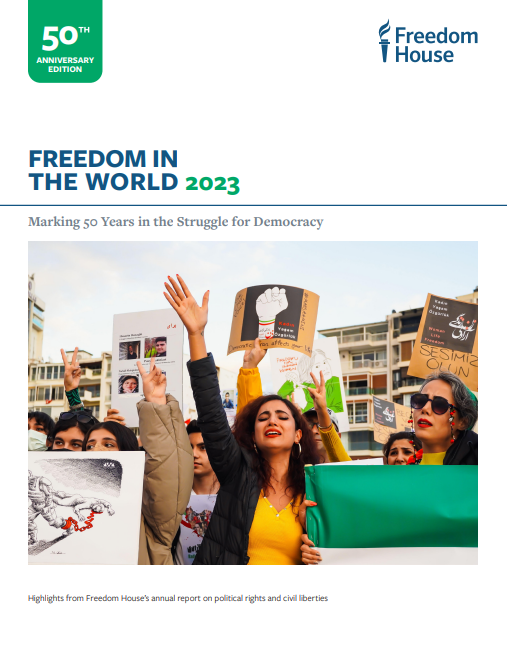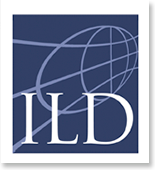The 2023 Freedom in the World report from Freedom House evaluates political rights and civil liberties in 210 countries and territories. As it celebrates its 50th anniversary, the report provides a comprehensive review of these rights and freedoms, emphasizing the triumphs and trials of democracy over the past fifty years. It documents a significant decline in liberty and democracy in 2022, triggered by wars, coups, and authoritarian leaders attacking democratic institutions, with Ukraine, Burkina Faso, Tunisia, Peru, and Brazil being the most affected.
According to the report, the fight for democracy is at a turning point. For the first time in 17 years, the gap between countries showing improvement and those experiencing a decline in political rights and civil liberties has narrowed. Thirty-four countries improved due to more competitive elections and lifting of pandemic-related restrictions affecting freedom of assembly and movement. For example, Colombia and Lesotho elevated their freedom status from Partly Free to Free.
Last year’s events demonstrated that autocratic leaders are not invincible. Their prioritization of political control over competence and ensuing corruption revealed the weaknesses in the authoritarian models promoted by Beijing, Moscow, Caracas, and Tehran. In contrast, democratic alliances displayed unity and strength.
Unfortunately, freedom of expression faced considerable assaults, contributing to the global decrease in democracy. Over the past 17 years, the number of countries and territories with zero media freedom scores has increased from 14 to 33. Journalists worldwide continue to face threats from autocrats and their allies, with protection often being insufficient, even in some democracies. The report noted pressure on media freedom in 157 countries and territories in 2022, highlighting increased invasions of privacy, harassment, intimidation, and self-censorship affecting personal freedom of expression.
Marking 50 Years in the Struggle for Democracy:
This section celebrates 50 years of dedication to democracy by reviewing past progress and achievements. It provides insight into the challenges and victories in promoting democratic values worldwide. It emphasizes the progress made in expanding democratic freedoms and establishing democratic institutions over the past fifty years while acknowledging the persistent challenges democracies face. These challenges include rising authoritarianism, erosion of democratic norms, and growing societal division.
The report traces the trajectory of the global democracy movement, beginning with the Third Wave of Democratization in the 1970s and 1980s. However, the report highlights that the progress of democracy has been uneven, with some countries experiencing democratic backsliding and authoritarian power solidification. Several factors contribute to this trend, including the rise of populism, government misuse of technology, and the growing influence of wealthy special interests.
Despite these hurdles, the report retains an optimistic view of democracy, citing the enduring resilience of democratic values and civil society activists’ sustained efforts to advocate for democratic reforms. It underscores the importance of preserving democratic institutions, upholding the rule of law, and protecting freedom of expression and association.
The report reveals a reduction in the number of countries classified as “free”, decreasing from 88 to 82 in 2022, marking the lowest level since 2009. The count of “partly free” countries fell from 60 to 59, the lowest since 2005. This downward trend is partly attributed to the ascent of authoritarian regimes, as “not free” countries rose from 57 to 59, the highest figure since 2012. Faith in institutions has also dwindled, with countries expressing “high levels” of trust falling from 44 to 39, the lowest level since 2009. Misinformation and disinformation have surged, with countries experiencing “high levels” of these rising from 33 to 36, the highest since 2017.
Freedom in the World Methodology:
The Freedom in the World 2023 report evaluates 195 countries and 15 territories, using the Universal Declaration of Human Rights as a benchmark. Each location is assessed based on 25 indicators of political rights and civil liberties. Areas are then classified as Free, Partly Free, or Not Free.
This scoring method prioritizes the actual rights and freedoms of individuals, regardless of their location, ethnicity, religion, or economic circumstances. It values individual experiences over government performance. Additionally, it considers the impact of both state and non-state actors on political rights and civil liberties, providing a comprehensive perspective on freedom in each location.
Regional Trends:
Freedom levels globally have decreased, especially in Central America and the Middle East, with numerous transitions to “Not Free” status. The Arab Spring in the early 2010s failed to lead to sustained democratic transformations in most Arab nations.
On the other hand, Europe experienced significant democratic advancements due to successful anti-communist movements such as the Velvet Revolution in Czechoslovakia. Colombia also made progress, transitioning from “Partly Free” to “Free”, largely thanks to a more democratic voting process, fewer restrictions on assembly and movement, and the decriminalization of abortion.
In Latin America and Africa, competitive elections led to considerable positive developments. These changes highlight the dedication of politicians and citizens to democracy, underlining its societal importance and value.
Policy Recommendations:
Political will is vital for the protection and expansion of global freedom. Through collective action, democracies can effectively counter authoritarian threats. Consequently, democratic governments must uphold fundamental rights, support civil society, and safeguard vulnerable defenders. Additionally, they must hold authoritarian regimes accountable for their actions.
It’s crucial to support civil society groups and human rights defenders with technical assistance, training, and flexible funding. Such aid can empower local communities by enabling these groups to sustain their operations domestically.
Moreover, democracies should cooperate to enforce severe penalties on those implicated in rights abuses or corruption. Implementing targeted sanctions or isolation measures can demonstrate the global community’s commitment to justice and accountability.
Lastly, democracies need to foster solidarity among Free and Partly Free nations. This could involve condemning autocrats and advocating for the appointment of democratic countries to critical positions. Active participation in international forums is crucial to ensure member countries adhere to treaties and charters, maintaining the integrity of international agreements.




